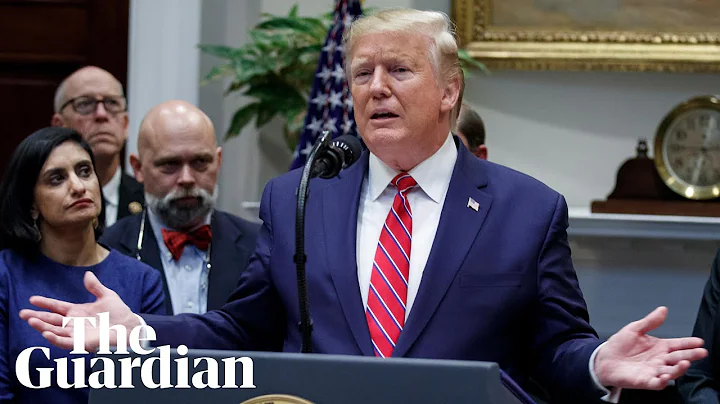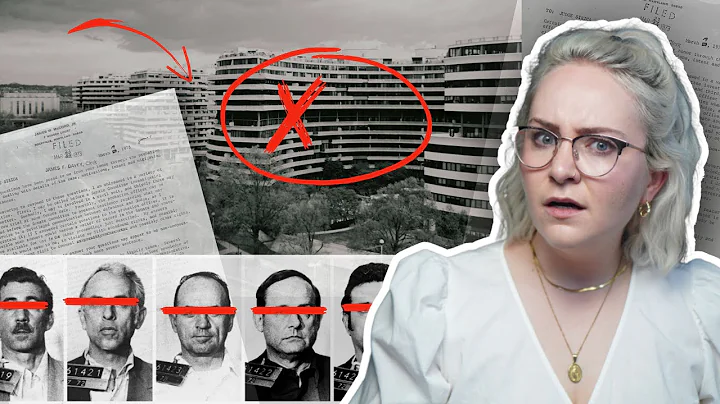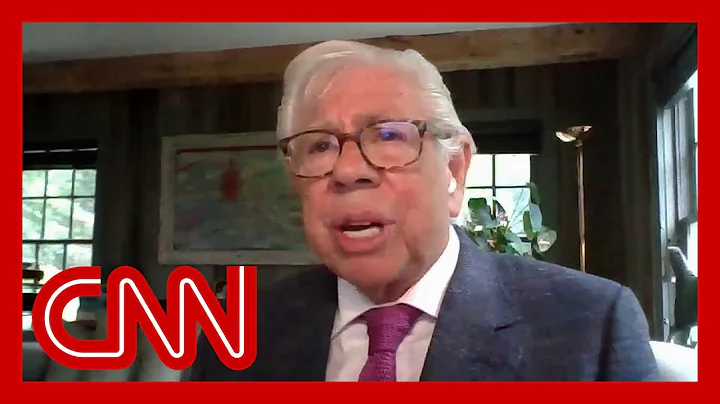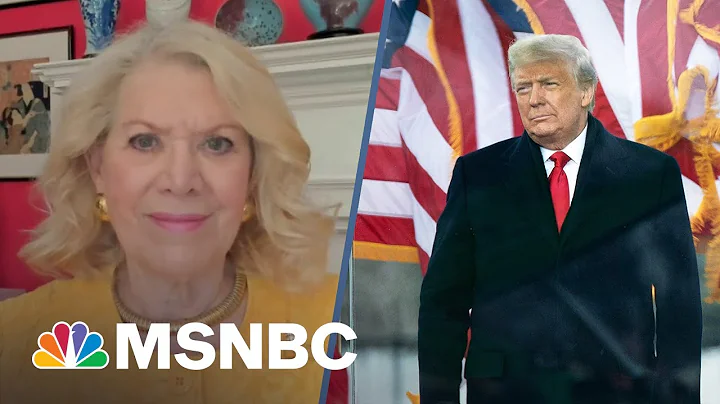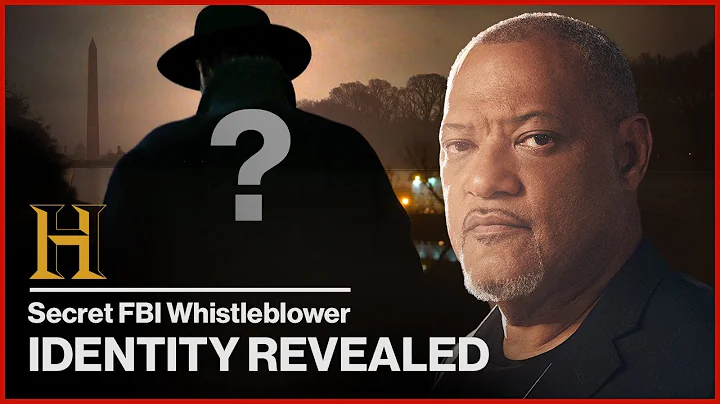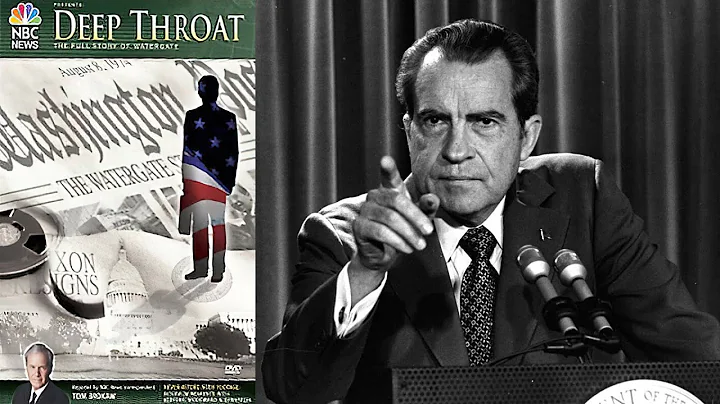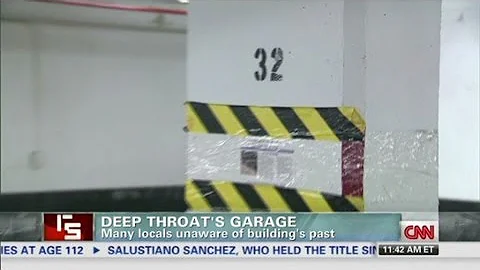
Watergate informant and "Deep Throat" Mark Felt (right).

U.S. Navy Commander Isaac Hopkins.
Yu Fei
Recently, an anonymous person in the United States reported that President Trump pressured Ukraine to investigate the affairs of his election opponent Biden and his son. As a result, Trump, who is embroiled in the impeachment investigation, expressed his intention to find the whistleblower and criticized: "Do we still need to protect the identity of the person who provided completely wrong information in my phone conversation?"
Today The United States vividly calls those who work within state agencies and institutions but come forward to expose violations and illegal activities of the authorities as "whistleblowers." Looking back on history, during the Revolutionary War, the Continental Congress passed the world's first law to protect whistleblowers. During the Civil War , Lincoln signed the False Claims Act. Those who reported fraud in medical, military and other official spending plans could receive government protection and a bonus of up to 30% of the stolen money.
During the Watergate scandal, the "whistleblower" nicknamed "Deep Throat" forced Nixon to step down. In 1989, the United States passed the historic "Whistleblower Protection Act" to protect "whistleblowers" who safeguard social justice.
1778: Whistleblowers were first protected by legislation
Countries have very different views on whistleblowers. Those who praise them praise them as "exposed persons", while those who criticize them denounce them as "whistleblowers". Compared with the mentality of ordinary people in other countries that "more things are worse than less things", taking the initiative to report officials' crimes is deeply ingrained in the DNA of Americans. The U.S. government has long made protecting whistleblowers a priority. The founding fathers passed the first law to protect whistleblowers seven months after signing the Declaration of Independence, and the cash-strapped new government generously paid for their legal fees as a sign of encouragement. Alison Stenger, the author of "Whistleblower: American Honesty from Washington to Trump" lamented: "This is the world's first whistleblower protection law."
The camera goes back to 1777 On February 19, 10 officers gathered below the deck of the USS Warren to sign a petition to expose to the Continental Congress the abuse of British prisoners of war by Commodore Isaac Hopkins, the most powerful man in the U.S. Navy. Without any legal protection, they knew that publicly denouncing the highest-ranking naval officers during the war risked being labeled a traitor.
Who is Hopkins? With a distinguished family background, he went to sea to work as a sailor at the age of 20. He became famous at sea for plundering enemy merchant ships and selling black slaves. During the American Revolutionary War, he served as the first Commander-in-Chief of the U.S. Navy. The unruly Hopkins was dismissive of the Continental Congress, repeatedly disobeying orders and blaming others.
Ignoring Washington's order to attack the British fleet, Hopkins actually led the ship to the Bahamas and captured a large amount of war supplies. On the way back, they encountered the British ship Glasgow, but the outcome was inconclusive. Then he stayed put in Rhode Island and resumed his old business of selling black slaves.
Ten whistleblowers wrote: "He has committed such a crime and is completely unqualified for public office." The report detailed the commodore's impatience, misconduct and bad character. Hopkins cursed the Naval Committee of the Continental Congress as "a damned bunch of fools." Reverend Reed worried that Hopkins was "extremely addicted to foul language" and had set "a most impious example." Captain Glennis said that he was "extremely rough and changed his orders day and night. I sometimes thought he was crazy."
American scholar Stephen Cohen, who specializes in "whistleblower" protection law, accidentally discovered this long-unknown past event when he was combing through historical materials 15 years ago. He emphasized that Hopkins did not serve the interests of the country in the Revolutionary War, but always made small calculations for personal gain. He repeatedly disobeyed Washington's orders and indulged in the illegal slave trade. This corruption was incompatible with the ideals of the new republic and Rhode Island's laws prohibiting the slave trade.
The Continental Congress quickly reviewed Hopkins, suspended him from service in March, and relieved him of his naval duties on January 2 of the following year.The disgraced Hopkins retaliated by filing a criminal defamation lawsuit in Rhode Island against 10 whistleblowers, and two Rhode Island residents, Richard Marvin and Samuel Shaw, were jailed. .
The two men petitioned the Continental Congress for help and were "arrested for doing what we then thought, and still think, to be our duty." American politicians clearly understand how much damage it will cause to the country if high-ranking officials use public power for personal gain. The Continental Congress announces top-notch defense counsel for two whistleblowers.
On July 30, 1778, the Continental Congress passed a law without objection to protect them and future whistleblowers. "All persons serving the United States and living on its soil have a duty to report to Congress or the appropriate government agencies misconduct, fraud, and bad conduct by public officials."
The Founding Fathers vigorously assisted the defendants and authorized the full disclosure of information about Huo. Records of Pukins' dismissal. Marvin and Shaw eventually won the libel case and were acquitted. In May 1779, the Continental Congress, which was strapped for funds, paid US$1,418 in legal fees. Don’t forget, in 1775, the total amount of currency issued by the Continental Congress was only $2 million.
1863: The False Claims Act heavily funded prosecutions
During the Civil War, unscrupulous private contractors tried their best to deceive the Northern Army and sold all kinds of inferior goods - military uniforms that faded in the rain, military uniforms mixed with sawdust. Gunpowder shells, old ships with new paint. Unscrupulous businessmen led to serious non-combat attrition of the Northern Army, causing huge public outrage.
Suffering from insufficient funds to establish a professional verification team, President Lincoln had an idea and authorized the public to act as whistleblowers. In 1863, he passed the False Claims Act (also known as the "Lincoln Law"). The new law stipulates that any insider who discovers fraud in government-established medical, military and other official expenditure plans can obtain government protection in accordance with the law and share up to 30% of the stolen money as a bonus. Fraudulent contractors and suppliers are subject to heavy penalties such as twice the fine.
According to the provisions of the False Claims Act, any member of the public who discovers that other individuals or companies have used deceptive methods to falsely report or falsely receive federal funds can report it to the Department of Justice. After receiving the report, the Department of Justice must handle the reported case. . If the Ministry of Justice believes that the whistleblower’s evidence is sufficient, it will take over the case to investigate and prosecute relevant companies and individuals; if the Ministry of Justice believes that the whistleblower’s evidence is insufficient, it will let the whistleblower decide how to deal with it. In this case, Whistleblowers have two options: give up or sue companies or individuals on behalf of the federal government.
The huge bonus clause is unprecedented, and this new law has triggered heated discussions within Congress. President Lincoln asserted: "What is more detestable than traitors are those who pretend to be loyal to the country, but shamelessly enrich the country when the blood of patriots stains the earth."
This bill has been revised many times, and was initially only applicable to In the field of military industry and supplies, since the 1990s, it has gradually been extended to areas where fraud is more serious, such as medical care and finance. The False Claims Act of 2014 alone brought "Uncle Sam" US$5.69 billion in revenue, and more than 700 qualified whistleblowers received US$435 million in bonuses.
According to statistics from the U.S. Bureau of Statistics, as of 2012, 70% of federal procurement fraud was revealed by whistleblowers. In order to more effectively protect the legal rights and personal safety of whistleblowers, the United States launched the Witness Protection Program of the Law Enforcement Bureau of the Department of Justice in 1971. The Victims and Witness Protection Act and the Witness Safety Protection Act were promulgated in 1982 and 1984 respectively, providing protected persons with job opportunities, reasonable housing, an average financial aid of US$60,000, and changed identities of witnesses and their family members. Information, psychologists and social services, etc., and provide protection during project execution, especially during pre-trial and court proceedings, where personal protection must be provided 24 hours a day.
Since many whistleblowers are civil servants or other government employees, as “insiders” who report against powerful leaders are likely to suffer retaliation.In 1912, the U.S. Congress passed the Lloyd-LaFollette Act, which for the first time obligated federal employees to cooperate with congressional and prosecutorial investigations into corruption cases against government officials and departments, and to testify publicly without involving leaks. There shall be no retaliation of any kind against the whistleblower.
Watergate incident: triggering a wave of whistleblower legislation
Who is the mysterious figure "Deep Throat" who brought down President Nixon? On May 31, 2005, the answer finally came to light.
His true appearance was revealed 33 years later. It was none other than the 91-year-old former deputy director of the FBI Mark Felt. "I am 'Deep Throat'!"
"The whole family believes that my grandfather is A great American hero, he took personal risks to save the country from injustice, which far exceeded the duty itself. "It was he who made the Watergate scandal the most serious act of political corruption in the United States to date. Rewriting American history.
Why did he dare to take huge risks and come forward to expose the truth about President Nixon’s illegal abuse of power? "Vanity Fair" analyzed the shocking secret of "Deep Throat": Shortly after the Watergate Incident, the FBI Director Hoover passed away, and Felt was very likely to be his successor. Unexpectedly, Nixon appointed Deputy Attorney General Gray to take over. "This may have stimulated Felt and contributed to his determination to report."
Some historians analyzed that Felt was just "a role in the power struggle between the FBI and the government." Felt once said to his son Mark: "I don't think playing the role of 'Deep Throat' is something to be proud of." The reason why "Deep Throat" appeared was simply to "get enough money to pay the bills." Vanity Fair was asked to offer Felt and his family a payment, which the magazine couldn't accept.
The United States, which is based on pragmatism, has long outgrown its moral ideals and chosen to face up to the complex and diverse nature of human nature, admitting that the vast majority of "whistleblowers" are not moral role models and are more likely to pursue bonuses or seek revenge. Ordinary people, imperfect but can provide real clues to the fight against corruption. All the U.S. government has to do is fully encourage them to eliminate their concerns, mobilize their enthusiasm, take a step forward, and tell the truth.
After the "Watergate Incident", the U.S. Congress passed the Civil Service Reform Act in 1978, which abolished the Civil Service Commission, which was originally responsible for civil service management, and dispersed its powers to the Office of Personnel Management, the Merit System Protection Board and the Federal Labor Relations Board. This move aims to avoid the mutual protection between superiors and subordinates, or the "superior's superior" being unable to treat relevant reports objectively because of his favorable impression of his subordinates. It can also protect the whistleblower and avoid being put in "transparent shoes" for reporting.
The "Government Ethics Law" passed in the same year stipulates that if a whistleblower is forced to publicly disclose the financial status, professional resume and immediate family members of public officials in accordance with the law, or reports that a government official violated relevant regulations and engaged in prohibited activities during the "cooling period" after leaving his job, occupation or conduct, or providing information to the Office of the Independent Counsel to cooperate with its investigation, are protected by law.
In 1989, the "Whistleblower Protection Act" passed by the United States integrated various previous protection measures for federal employee whistleblowers and strengthened related protections. The main purpose was to establish a special investigation office and separate it from the Performance System Protection Committee. , became an independent agency of the federal government, introduced the participation of the intelligence system, and provided for an "individual right of action" system. If the "whistleblower" is dissatisfied with the ruling of the Office of Investigation, he can still appeal to the Performance System Protection Commission again. If he is still dissatisfied, he can still Complaint to the Court of Appeals for the Federal Circuit.
Within 3 years of this bill taking effect, the number of "whistleblowers" increased by 20%, and the number of protected persons increased by 13%. Since then, the Act has been revised and improved many times, and has played a significant role in protecting "insiders." The Whistleblower Protection Enhancement Act of 2012 extended protection to federal employees in the intelligence community and other personnel with security clearances.
As far as the protection of whistleblowers in the private sector is concerned, since the 1960s, the civil rights movement has been in full swing, economic regulation and social regulation have emerged, and the United States has made great strides towards a regulatory society. Congress has successively enacted a series of laws and regulations to provide legal protection for "whistleblowers", prevent whistleblowers from being maliciously dismissed by corporate employers, and support them in filing civil lawsuits for compensation.
In 1972, the term "whistleblower" became popular. Attorney Raf Nader, the contemporary American consumer protection god, published a book this year: "Whistleblower: Report of the Conference on Professional Responsibility." American "whistleblowers" are no longer the "spies, traitors, and despicable people" they were in the eyes of the people in the past.
The occurrence of a series of events such as the Watergate scandal and the Challenger space shuttle disaster have made American society generally agree that "whistleblowers" play an important role in preventing and combating bureaucracy and government abuse of power.
Since the 1990s, the financial fraud scandals of Enron and WorldCom and the 2007 financial crisis have once again triggered a response from the U.S. Congress, which has introduced a large number of laws to protect "whistleblowers" in the private sector - " Sarbanes-Oxley" -Oxley Act (2002)", "Dodd-Frank Act (2010)", etc., the American "whistleblower" protection legal system is unprecedentedly prosperous.
Currently, more than 1,000 people in the United States send emails to the Securities and Exchange Commission every day, and an average of 2,000 people contact the U.S. Department of Defense every month. Most of these people who provide information are "whistleblowers." Nearly every newspaper has a feature on "whistleblowers." After the "9·11" incident, "whistleblowers" reported concerns about national security being undermined; After the California energy crisis, energy sector "whistleblowers" revealed the shortcomings of the energy system; in Congress, private company auditors Testify under oath to expose corporate tax evasion. Someone joked: "The United States has more 'whistleblowers' than any other country in the world."
"Whistleblowers" are "the nexus of errors and innovation. They have a keen eye for hidden misconduct. Their ability to detect misconduct" The efficiency is higher than that of auditors, inspectors and other professionals within government agencies.” Cohen, a giant in U.S. “whistleblower” protection law, said emphatically: “The U.S. Congress and executive departments should follow the example of the Continental Congress in supporting and protecting ‘whistleblowers’. , instead of ignoring and intimidating 'whistleblowers'"
Editor: Gao Hengtao
.


